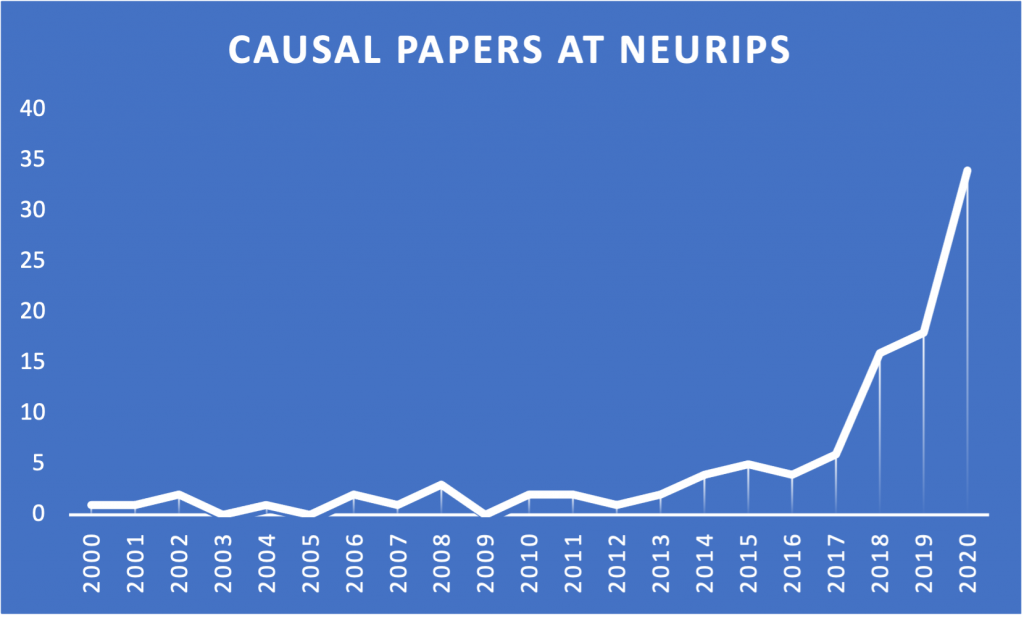I recently wrote a paper for a client on how AI could be engineered to maximise the cognitive performance of a human who routinely needs to make complex decisions with uncertain, incomplete and ambiguous information (aka. no mean feat). I made the point that investing in equipping machines with a causal understanding of some world of interest would be key.
Now, whilst causal inference is not new to me – its my main area of academic research – I did recall that I’d been seeing more published papers on the subject in recent times. This piqued my curiosity so, after logging in to the NeurIPS 2020 site, I did a (very) quick search on all papers that had ever been presented at NeurIPS that had ‘causal’ or ‘causation’ or ‘causality’ in their title. Here’s what I found:
Now, as I said, this was a quick and dirty piece of analysis (i.e. there may have been any number of papers that covered topics related to causal inference such as probabilistic graphical models, and so on, that I have not included here).
But I think the results are somewhat illuminating and, if I was Gary Marcus, I’d be quietly encouraged that the AI community is beginning to enter the 3rd wave of AI where robust, reliable and trustworthy AI will reign.
